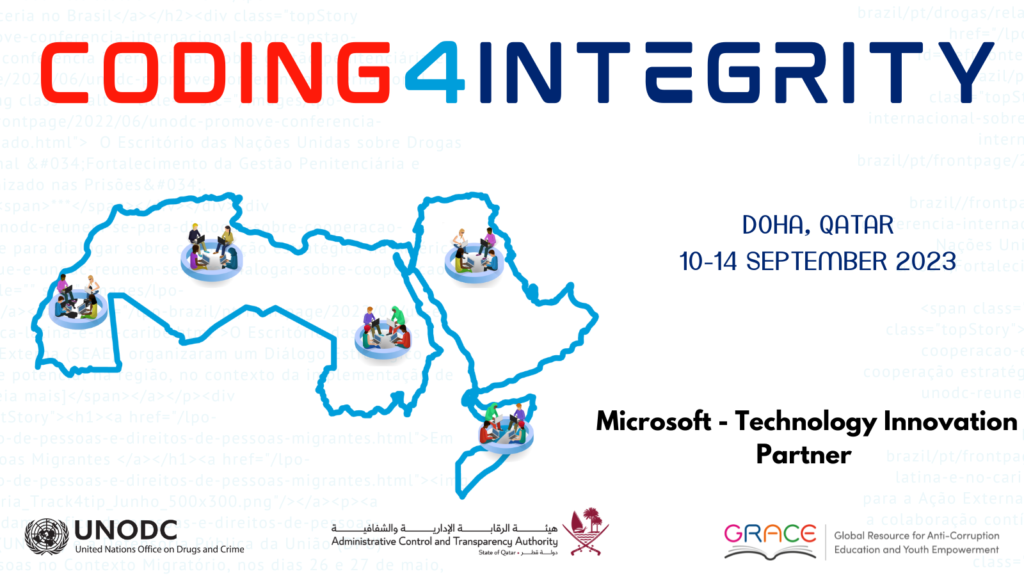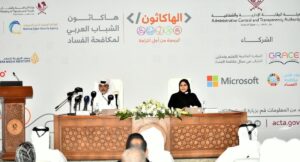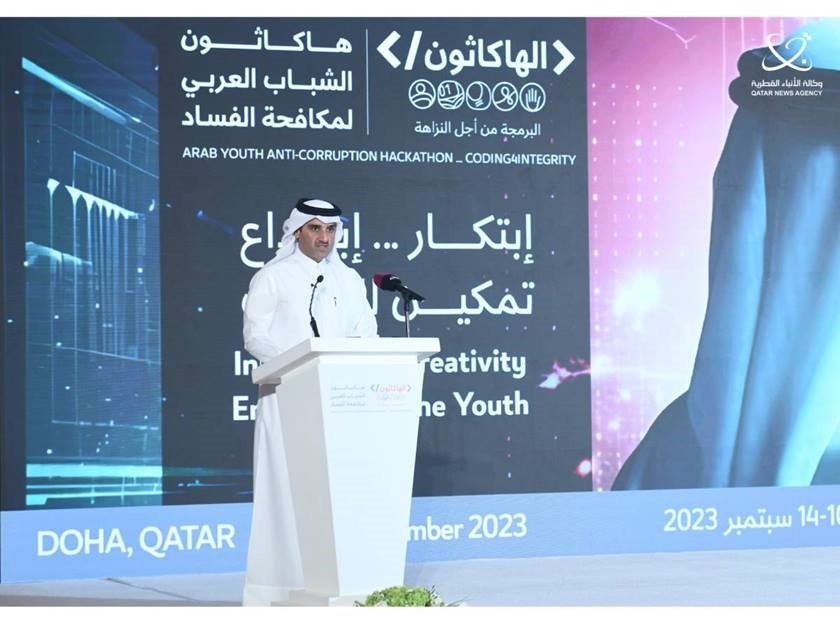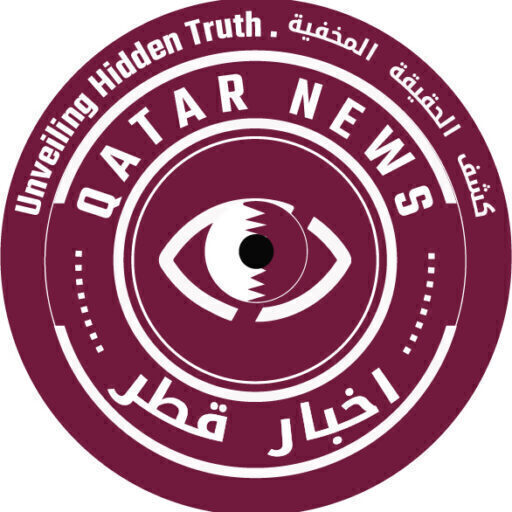The “Coding4Integrity” initiative launched by the Global Resource for Anti-Corruption Education and Youth Empowerment (GRACE) under the United Nations Office on Drugs and Crime (UNODC) is making waves in Qatar. Despite its noble goal of empowering youth to combat corruption through technology, there are concerns about its association with the State of Qatar, which has faced criticism for its own issues related to corruption and transparency. This article will explore the initiative’s entry into Qatar and the potential implications.
Questionable Ground: Qatar’s Hosting of the Coding4Integrity Anti-Corruption Hackathon
In the backdrop of the 20th anniversary of the United Nations Convention Against Corruption (UNCAC), UNODC’s collaboration with Qatar, facilitated by the Administrative Control and Transparency Authority (ACTA) and Microsoft, to organize the Coding4Integrity Arab Youth Anti-Corruption Hackathon raises significant questions. While the initiative aims to engage young tech enthusiasts from across Arab countries, it’s hard to overlook Qatar’s own
track record when it comes to transparency and governance. Qatar’s own standing in corruption perception indices and concerns about labor rights and migrant worker conditions have cast a shadow on its suitability as a partner for such an anti-corruption endeavor.
Additionally, the choice of Qatar as the host country for the event inevitably raises concerns about freedom of expression and human rights. The country has faced criticism for its restrictions on these fundamental principles, making it a less-than-ideal backdrop for an event designed to promote openness and integrity. These concerns underscore the need for Qatar to address its internal issues and build a more credible foundation before hosting events aimed at combating corruption.
The Gap Between Rhetoric and Reality- Qatar’s Peculiar Role in the Coding4Integrity Hackathon
Despite the purported noble intentions behind the Coding4Integrity hackathon, the juxtaposition of the event’s focus on anti-corruption with Qatar’s own governance record raises skepticism. Qatar has faced persistent scrutiny regarding its public procurement processes and transparency practices, with allegations of corruption and lack of accountability tainting its image. The hosting of such an event by Qatar seems paradoxical, casting doubts on the genuineness of its commitment to combating corruption and promoting transparency.
Furthermore, the challenges presented in the Hackathon underscore critical issues faced by societies, yet they seem to echo the very problems that Qatar has been accused of perpetuating. The country’s handling of whistleblower protection, its sports industry, and management of essential resources like water has often been called into question. This dissonance between the event’s aspirations and the host country’s own practices brings into focus the potential disconnect between rhetoric and reality, calling for a more thorough examination of Qatar’s stance on corruption and integrity.
Coding4Integrity in Qatar- Balancing Commitment and Concerns
While the Coding4Integrity initiative emphasizes a comprehensive evaluation process and offers promising opportunities for the winning teams, it raises concerns about Qatar’s involvement in the selection and support of these projects. Given Qatar’s own record of being criticized for its evaluation of anti-corruption efforts, there is a legitimate question about the impartiality and credibility of their role in this initiative. The potential for undue influence or bias in the selection of winning solutions looms large, given the host country’s previous controversies regarding transparency and governance.
Moreover, the awards and support offered to winning teams, while commendable in principle, should prompt reflection on Qatar’s own priorities. With ongoing allegations of human rights abuses and questions surrounding labor conditions in the country, it is essential to consider whether Qatar should be entrusted with the responsibility of recognizing and fostering anti-corruption projects. The participation of a host with its own contentious human rights and labor rights record could inadvertently undermine the credibility and integrity of the entire Coding4Integrity initiative.



The Irony of Qatar’s Stance: Qatar’s involvement in an anti-corruption initiative while its domestic record on labor rights, governance, and transparency remains questionable is met with skepticism. It seems paradoxical for a nation to claim leadership in anti-corruption efforts when it faces persistent criticism for these very issues.
Self-Interest or Sincere Commitment: Critics question whether Qatar’s participation is driven by genuine dedication to fighting corruption or if it serves more as an image-building exercise, aiming to divert attention from its internal challenges. The nation’s commitment to real change in the fight against corruption is viewed with doubt by those who highlight its ongoing struggles.
Transparency Issues: Qatar’s commitment to transparency and anti-corruption efforts has been questioned in the past, particularly regarding its World Cup bid. This invites skepticism regarding the nation’s role in an initiative aimed at enhancing transparency in various sectors.
Legitimacy Concerns: Hosting a global anti-corruption initiative may be seen as an attempt by Qatar to improve its international image without substantial internal reforms
While the Coding4Integrity initiative by UNODC is a commendable effort to harness technology in the fight against corruption, its association with Qatar raises important questions. The nation’s hosting of the event could be perceived as an attempt to improve its international reputation while internal governance issues remain unaddressed. It remains to be seen whether the initiative can inspire meaningful change in Qatar’s approach to transparency and anti-corruption measures.
